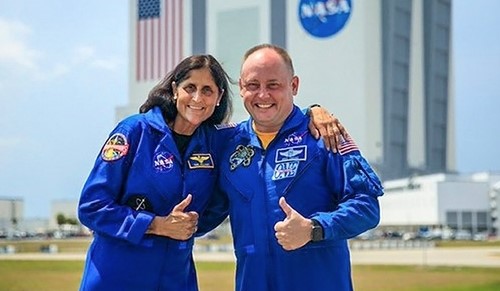NASA scientists are facing a stressful and uncertain time after a new budget proposal from the Trump administration suggested closing one of the United States’ most important climate research labs.
NASA Faces Big Changes as Budget Threatens Climate Lab
The NASA Goddard Institute for Space Studies, or GISS, is the name of this laboratory. The plan is to stop GISS from being its own separate lab and instead move some of its work into a larger environmental program within NASA.
Scientists who work at GISS are now stuck working from home, not sure what will happen next. Just recently, they were forced to leave their longtime office in New York City. Many worry that if the lab closes for good, it could hurt the value of the work they do and the United States’ leadership in global climate science.
One GISS scientist described the situation as an “absolute sh*tshow.” This scientist, who asked to remain anonymous, said morale at the lab has never been so low. They feel like NASA’s top leaders are abandoning them. The scientist also said they don’t know what will happen with the new plan to merge their work into a “virtual NASA modeling institute.” No one knows exactly how this will function or what it will look like.
The Importance and History of GISS
Despite the current confusion, NASA defends the budget proposal. GISS has had a significant impact on the history of space science, according to a representative called Cheryl Warner. Warner said the lab’s work is very important for NASA’s Earth Science Division, especially when it comes to climate modeling — the process scientists use to predict how Earth’s climate might change in the future.
GISS is famous worldwide for its climate research. The lab was started in 1961 and has about 125 scientists working on it today. The lab is known for creating computer models that help predict changes in global temperature, rainfall, and extreme weather events caused by climate change. Scientists at GISS also track global temperatures, and their data is trusted as one of the independent ways to check the findings of other climate research groups around the world.
James Hansen, a former head of GISS, rose to fame in 1988 when, during a sweltering summer, he alerted the U.S. Senate to the threat of human-caused global warming. Since then, the lab has contributed to global understanding of the relationship between greenhouse gases, pollutants, and volcanoes and their effects on the climate.
The independence of the lab is essential to its success, according to GISS scientists. Because the lab is far from NASA’s main office in Washington, D.C., the researchers have been free to explore important climate questions without much interference. This freedom has helped them publish many important studies.
Scientists also said the leaders at GISS have done a good job communicating and supporting the lab’s work, which is important for climate science. The continuation of climate modeling is crucial, according to one expert. They are our best resources for the earth.
What the Budget Means for GISS and NASA’s Climate Work
Four NASA centers’ climate research would be combined into a single large “virtual institute,” according to the Trump administration’s budget proposal. Although GISS will no longer function as a stand-alone facility, the budget states that its fundamental activities will be included “as needed.”
NASA spokesperson Cheryl Warner said the budget aims to balance space exploration leadership with careful spending. She said NASA is changing how it works and invests money to meet its goals.
The budget’s proposal to combine GISS into a virtual institute is thought to be preferable to other agencies, such as the National Oceanic and Atmospheric Administration (NOAA), facing the worst-case scenario. The budget plan from NOAA would close the majority of its labs and reduce nearly all of its weather and climate research.
Volcanoes Whisper Through Trees: NASA Detects Eruption Warnings from Space
However, compared to previous year, the planned NASA budget represents a significant drop. NASA’s overall budget would decrease by 24%, and the agency’s scientific operations would be reduced by 47%. When inflation is taken into account, this would be NASA’s lowest budget since 1961, according to the Planetary Society, an organization that supports space exploration.
Congress will make the ultimate decisions over NASA’s budget, including what will happen to space missions and climate research. For the GISS scientists, who are already apprehensive about their future, this creates even more doubt.




